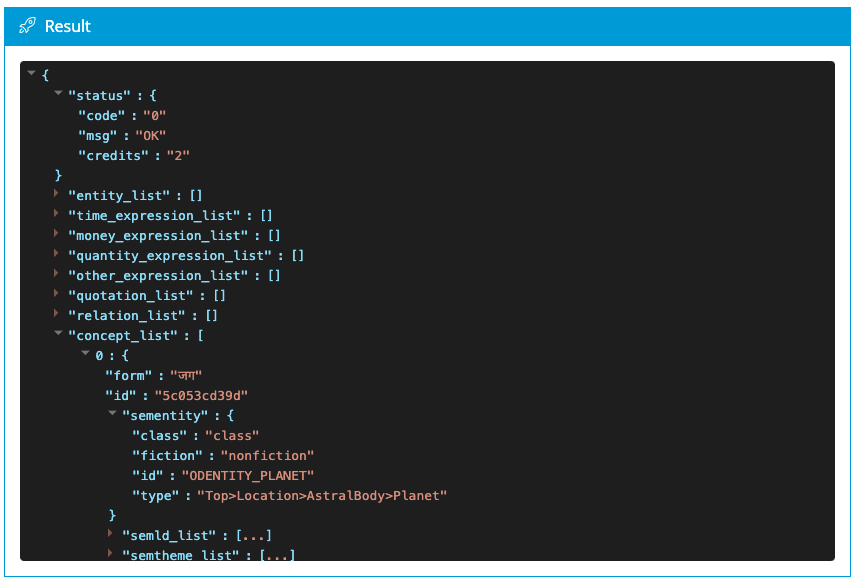It’s time to celebrate! We are rolling an update to our APIs that allows analyzing texts in fifty-seven languages. Our dream of multilingual text analytics based on our deep semantic approach has come true.
Until now, to analyze texts in different languages, we needed to maintain a model per language. This gives good results, although it was hard and expensive. We can do better.
Zero to near sixty in no time
We have integrated our APIs with deep neural network technology to translate all these languages into English. Thanks to this, our users can analyze texts in many languages maintaining only one model. And no action is required. All the new languages will appear in your test console and are available in the APIs.
The complete list of languages includes Chinese, Hindi, Arabic, Russian, Japanese, Turkish, German, and many others that our customers have requested frequently. This adds to our current offering for English, Spanish, French, Italian, Portuguese, and the languages we were covering partially (in some APIs).

Which APIs support the new languages?
The APIs that are ready for the new languages are:
- topics-2.0
- sentiment-2.1
- class-2.0
- deepcategorization-1.0

Regarding our standard APIs, for topic extraction, sentiment analysis, and classification, you can transparently use our machine translation service for free (up to a total of 20,000 requests per month). Multilingual text analytics for free.
Analysis of the Voice of the Customer in a telecommunication setting for Chinese? Intention analysis in Russian? Emotion recognition in Italian? Interpreting the Voice of the Employee in German? It’s all at your fingertips. Remember that we offer this kind of advanced analysis (carried out by our Deep Categorization API) for free for one month (up to the same total of 20,000 requests per month). You just have to start the trial period in your user area.
And we remind you that other APIs (Clustering or Document Structure Analysis) are language-independent. They work for any language (even outside the current list of 57 languages we are launching today).
First-class models and translations
We will continue offering our first-class linguistic analysis for six languages. Then, if you already use them, your results will not vary.
On the other hand, for the remaining languages, or if you are interested in any of the specialized premium models that were only available in English and Spanish, the API will now translate the text into English and analyze it with our model for English. You will be surprised by the good overall quality of the results.
This also applies to user models: if you have your own model for the English language, you can analyze a text in any other language thanks to the automatic translation.
Farewell, language packs
We decided to remove the language packs. That’s it. Now you have access to all languages at no extra cost. If you have subscribed to a language pack, your subscription has already been canceled.
How much do we charge for translation?
A MeaningCloud request (or credit) is equal to the analysis of any text up to 500 words for standard APIs and 125 words for the Premium ones (Deep categorization). If your text exceeds this number, an extra request will be charged for every extra 500/125 words. If a standard API call involves machine translation, you will be charged double. This is for alphabetic languages.
In the case of logographic languages (Chinese, Japanese and Korean), accounting is made in characters (hanzi in Chinese, kanji in Japanese, or hanja in Korean): one request per 500/125 characters of fraction (depending on standard/premium APIs).
How much do we charge for language identification?
We do not charge for language identification when carried out in APIs supporting Autodetect mode (Topics, Sentiment, Classification, and Deep categorization). Still, we recommend specifying the language parameter in the API call when known, as it impacts response time.
Otherwise, if you call the Language Identification API directly, you will be charged as a standard API.
On the shoulder of giants
Machine translation is a thrilling subject. We have enjoyed so much playing with Seq2Seq, OpenNMT, and Marian NMT. No need to say how we thank all the researchers and engineers that made all this a reality. We have also made a huge effort to get good performance in the APIs. Because of that, we are so happy to share this news with you. So, go test it!

